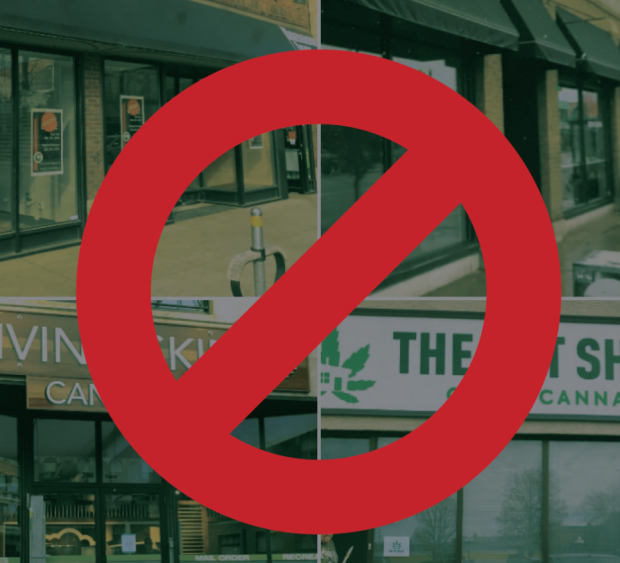'Supply is low': Saskatoon and Regina may have no pot stores open on legalization day
People living in Saskatchewan's two largest cities may have to travel to neighbouring communities Wednesday if they want to purchase legal recreational cannabis for the first time.
None of the 13 legal cannabis stores in Saskatoon and Regina have confirmed with CBC News that they will open their doors on the day of legalization. Seven out of the 13 have said they definitely won't.
"The most important [reason] is that our supply is low," said Geoff Conn, the co-owner of Saskatoon's The Pot Shack.

Even suppliers with whom Conn had entered contracts came up short at the critical hour, pushing his store's opening date by two weeks.
"We have asked [suppliers] what's going on," he said. "A case of losses during packaging has been an excuse. As a user, if I was to roll a joint and anything was to fall out of it, I would just put it back in my bag."
The apparent city-wide delay means Saskatoon residents may have to travel 20 kilometres north to Martensville, where Prairie Sky Cannabis plans to open a Jimmy's Cannabis store at 11 a.m. CST.

The nearest store to Regina that has confirmed it will open is 30 kilometres away in the Regional Municipality of Edenwold.
Short of expectations
The Saskatchewan Liquor and Gaming Authority (SLGA) had said it hoped that 17 of the province's 51 cannabis retail stores would be open Wednesday.
But in a survey of businesses conducted by CBC News, only five said they would.
Cierra Sieben-Chuback, the owner of Saskatoon's Living Skies Cannabis, also blamed supply issues for her store not being ready.
"The reasoning [suppliers have] given me is that there just isn't enough supply to go around," she said.
'I urge you to remain patient': SLGA
So dire is the supply issue for Saskatchewan stores that, on Friday, SLGA sent a stern email to store owners reminding them not to turn to the black market or medical growers.
"Although I appreciate the pressure to open stores as soon as possible, I urge you to remain patient while any bumps in the supply chain are worked out in the coming weeks," wrote Joanne Gasper, SLGA's director of cannabis licensing.
Turning to illegal sources for supply could mean the permanent cancellations of a store's permit, Gasper wrote.
Some permit holders beat out hundreds of other candidates to win a crack at a permit earlier this year.
"I'm actually quite surprised that that letter needed to be sent out," said Lori Uhersky, one of six co-owners of Regina's Wiid Boutique Inc.
"I can't believe that anybody would actually consider purchasing from the black market and jeopardize everything they've worked for."
Still waiting for city permit
Wiid Boutique won't be ready Wednesday, either.
Uhersky said one supplier told her last week it wouldn't be ready to send product until Oct. 22.
But the supply issue is moot for her: Wiid is still waiting on its building permit from the City of Regina, despite her having applied as soon as she could, said Uhersky.
She said it would be "really nice" if the city sped up the process for cannabis retailers who faced a tight deadline to open from the moment the Saskatchewan permit lottery winners were announced in early June.
"But unfortunately, that's not the way it works," she said.

In an emailed statement, a city spokesperson said building permit applications are reviewed on a first come, first serve basis "to ensure fair and equitable treatment to all of building permit applicants."
"The city is continuing to work with the applicants and communicating with them through the process," the spokesperson said.
Hoping to avoid buying limits
In Saskatoon, The Pot Shack owner Conn said he'd rather not hold customers to a purchase limit in order to control his supply.
According to SLGA, customers can purchase up to 30 dried grams, or one ounce, of cannabis per every transaction at the till.
Conn doesn't think his typical customer will indulge in such Costco-style purchasing. Still, "If it starts to look like we're going to be out, we may suggest that they don't buy all that right now," said Conn.
"But at this point, why would we want to limit our customers?"
- with files from Samanda Brace and Samantha Maciag

